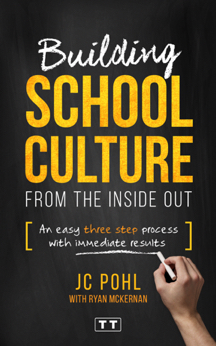I enjoyed my time in school and it troubles me deeply to see students in pain.
In my work with TEEN TRUTH & RISING UP I have met suicidal students, and I have seen so many overcome negative thinking and adversity. So all this talk about Netflix’s 13 Reason’s Why has really got me going. I want to show students there are other ways out instead of suicide.
That’s why I’ve made my own list of 13 Reasons Why Teens Overcome Suicidal Thoughts.
Want your school to stand out like a lighthouse on the stormy seas of depression and suicide? Then make sure your students match up with this list.
1. Get Involved. The easiest way to overcome negativity and depression is to take action. Getting involved in a group, team, club or other activity gets young minds moving in a positive direction.
2. Form Relationships. Research shows that relationships help drive happiness, and many who choose not to commit suicide point to relationships with friends or family as one of their main reasons for enduring.
3. Serve Others. Humans naturally form small, tight-knit communities, living as social animals that contribute to their group. Being the difference in the lives of others is the quickest, most sure fire way to happiness.
4. Find a Rhythm. When I counsel depressed clients, we look for ways to create small wins for them. By focusing on small solutions that they can accomplish today, tomorrow, or by the next time we meet, a positive “rhythm” is created.
5. Take a Break. Life is stressful, and sometimes we all need a break! Science has proven that exercise, meditation, journalling, experiencing nature, and going for walks are great ways to give our mind a break from stress.
6. Normalize the Pressure. Even before Hamlet said, “To be or not to be? That is the question,” people have struggled with the strains of life. Help your students realize that humans have been dealing with these thoughts since the beginning of time. This gives them solace and hope that they can overcome, just as others have in the past.
6. Tell Your Truth. Teens often feel like they have to keep up a perfect image, but I have seen many find great strength in telling their truth. By being honest about our feelings and vulnerable with those who care about us, we build stronger relationships and find help when it’s needed.
7. Discover Strength in Adversity. At TEEN TRUTH we call this “finding your voice”, in counseling I call it a strength-based approach. Teens who take the time to discover their strengths are more resilient to adversity.
8. Keep Things in Perspective. “This too shall pass.” We all know the story of how nerdy Bill Gates grew up to rule the world. Keeping things in perspective is hard for teenagers because developmentally it is often difficult for them to see past the present. We must explain to teens that, in time, things do get better.
9. Know the Difference Between Self-Esteem and Self-Efficacy. I didn’t learn this until I was in my masters program at Texas State! Self-esteem draws on outside forces to define self, but self-efficacy draws on internal forces to define the self. It is less about what the world thinks about you, and more about what you think about you. Both teens and adults that I work with are blown away when they are able to switch this perspective on self-worth. We should encourage teens to have high levels of self-efficacy. Self-esteem is a never-ending myth.
10. Use Adversity for Self Discovery. Yes, times are hard right now. But the only time we really grow is during adversity. We don’t find out much about ourselves when we are on the mountain top, but we sure find out what we are made of when we are making the climb.
11. Accept that the World is Difficult. Everyone carries their own burdens. It is important for teenagers to realize that life is not some Disney movie or plastic celebrity profile on Instagram. It is hard. Just by admitting that, we allow ourselves the freedom to roll up our sleeves and take on a problem-solving attitude.
12. Find a Charismatic Adult. Dr. Robert Brooks has researched the heck out of resiliency, and has found that the single greatest factor in teenagers finding resilience is one charismatic adult. Every teen on your campus should be able to point to one adult in their life who they can turn to during a moment of need. If they can’t…well then you have some work to do!
13. Never Give Up. Hannah sat around thinking about everyone who hurt her, everyone who knocked her down…but as the great Rocky Balboa once said, “It ain’t about how hard you can hit, it’s about how hard you can get hit and keep moving forward, how much you can take and keep moving forward. That’s how winning is done.”
That is resiliency. And against true resilience, suicidal thoughts don’t stand a chance.
To learn more about how we can help you create a culture of resilient students visit www.teentruth.net or www.risingupcoaching.com. Helping students overcome negative thinking and suicidal thoughts is as simple as 13 Reasons Why.
Visit teentruth.net/schoolculture to download a FREE copy of my book — Building School Culture from the Inside Out.
JC Pohl, LMFT-A
President & CEO | TEEN TRUTH





